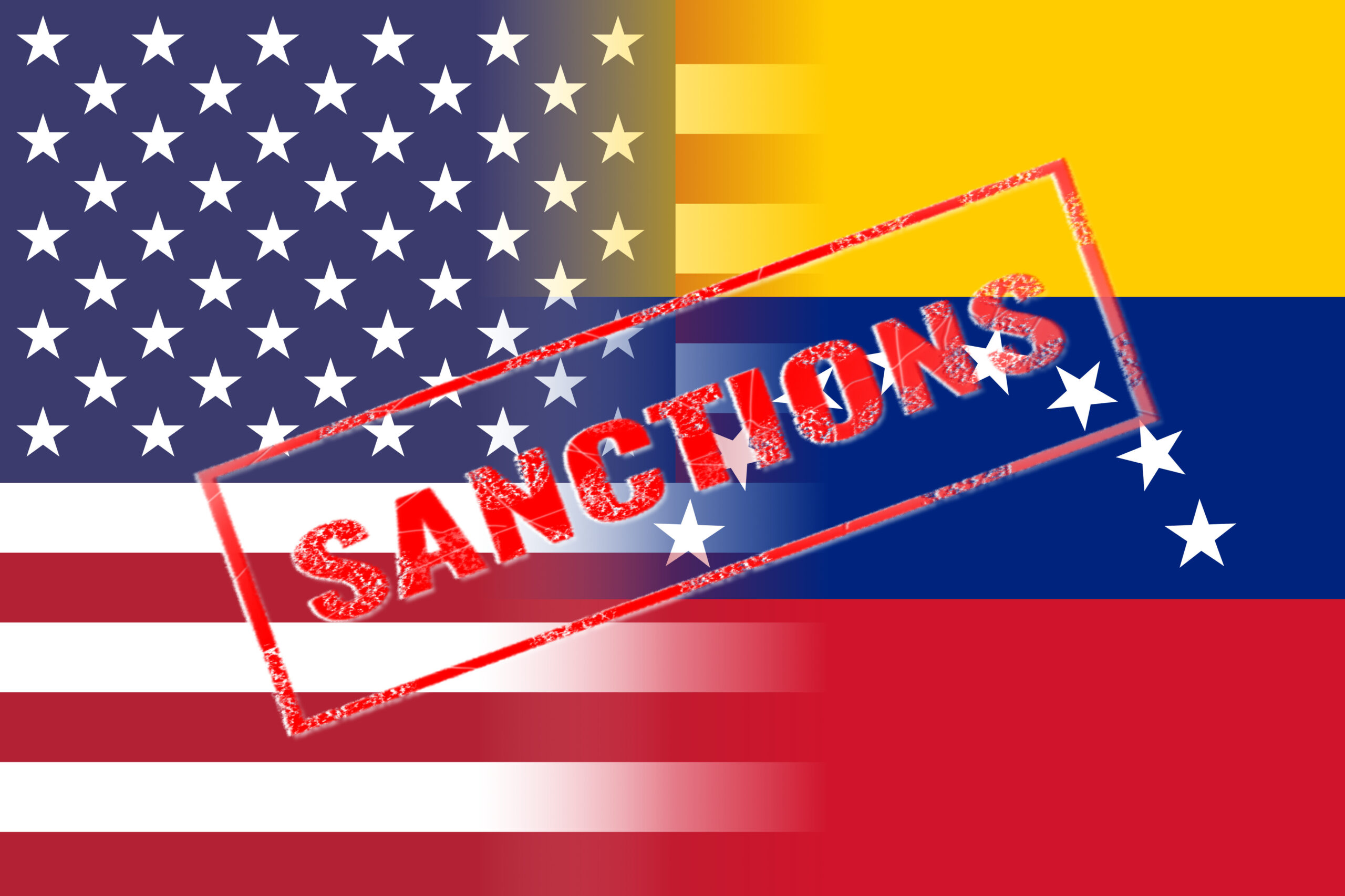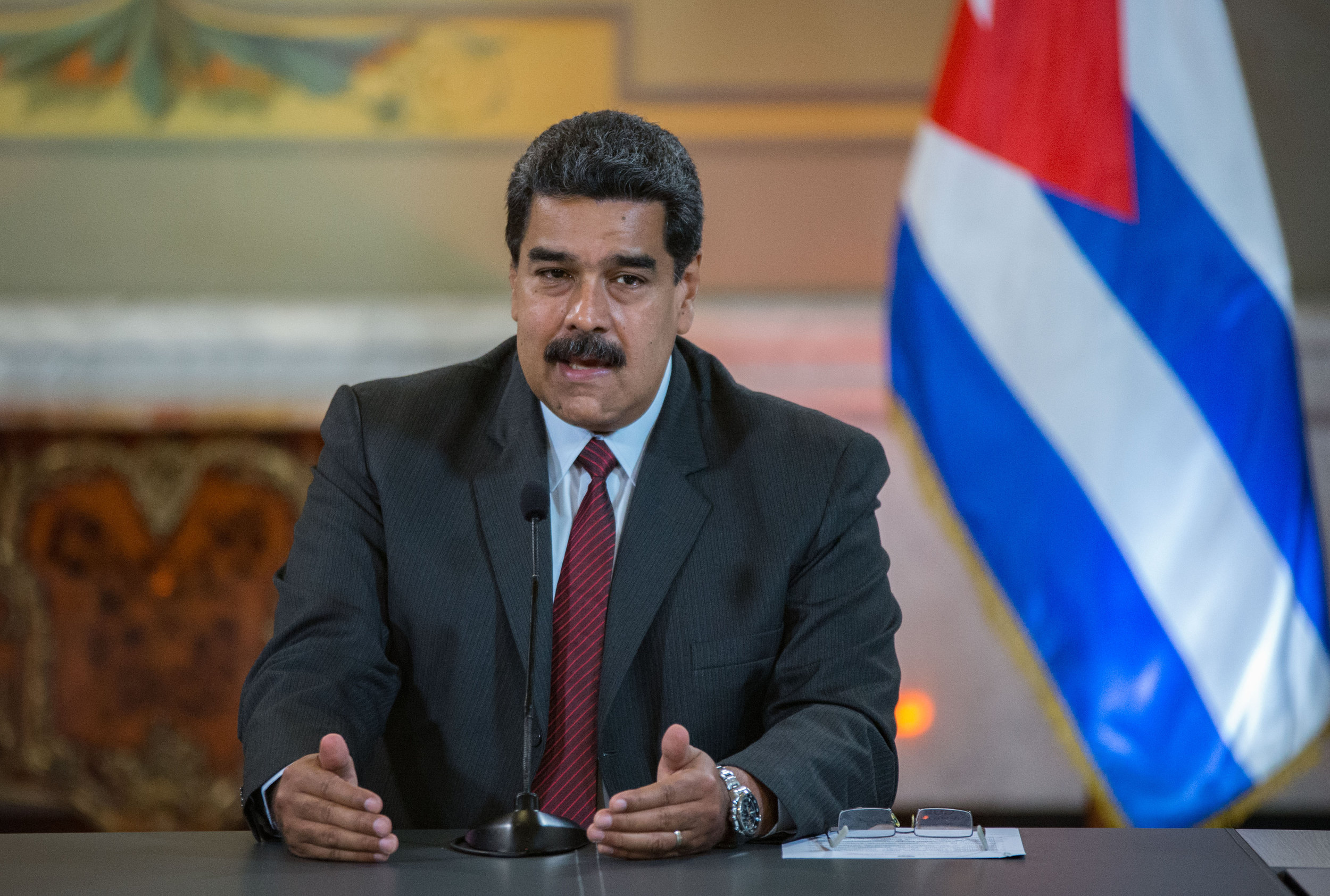According to the United States’ Office of Foreign Asset Control, (OFAC) the United States will “not stand by and watch as the illegitimate Maduro regime starves the Venezuelan people of their wealth, humanity, and right to democracy”.
This was written in a press release by Treasury Secretary Steven T. Mnuchin in a recent sanction against the Venezuelan Minister of Foreign Affairs. However, the policy of the United States for several years now has been one of starving the Venezuelan people by crashing the Venezuelan oil economy, and subsequently limiting the access to the foreign currency needed to buy essential and life-saving goods such as food and medical supplies.
In a report by Jeffery Sachs, an economist at Columbia University and the UN Sustainable Development Solutions Network, Sachs summarizes that the sanctions, first implanted in 2015, and worsened with the executive orders in 2019, fit the categories of “Collective Punishment” as outlined by the Hague and Vienna international conventions, to which America is a signature.
According to Sachs, they are also illegal under international law and treaties that the US has signed and would appear to violate US law as well.
A Forest of Contradictions
Recently, President Trump had a phone call with Vladimir Putin regarding the escalation of violence and deprivation in Venezuela. “And he (Putin) is not looking at all to get involved in Venezuela other than he would like to see something positive happen for Venezuela, and I feel the same way. We want to get some humanitarian aid – right now people are starving, they have no food, they have no water,” he said.
A curious thing for Trump to suggest considering it is his swathe of executive orders that have caused hyperinflation, a loss of over $10 billion in oil exports, and according to the National Survey on Living Conditions, an annual survey of living conditions administered by three Venezuelan universities, a 31% increase in general mortality from 2017 to 2018.
That 31% increase would in theory result in 40,000 additional deaths. Most import/export statistics support this dismal claim, as food imports have dropped sharply along with overall imports. In 2018 they were estimated at just $2.46 billion, as compared with $11.2 billion in 2013.
Under threat of more sanctions, the United States has managed to enlist the aid of several other countries, some of which have good relations with the government of Venezuela, to aid in the stranglehold. Even Gazprom, a Russian oil company majority-owned by the Russian government, ceased transactions and froze foreign assets of the national oil company in Venezuela under threat of sanctions from Washington.
Another blow was the executive orders in January 2019 which ceased Venezuelan oil exports to the US – their last foreign market, and prevented the trade of petroleum products to allow the heavy crude oil of Venezuela to be processed and sold to other markets. If Trump truly wanted some humanitarian aid to reach the people of Venezuela, the obvious choice would be to remove the impenetrable restrictions on their ability to import goods and export oil.
“If we look at the combined impact of all of these actions,” Sachs writes, “we find that they drastically reduced the ability of Venezuela to produce and sell oil and to sell any foreign assets of the government, the most important of which were frozen and/or confiscated; and also to use whatever foreign exchange that the country is still able to earn to buy essential imports”.
“For these reasons, a baseline projection of Venezuela’s real GDP shows an astounding and unprecedented decline of 37.4% in 2019, as compared to 16.7% in 2018. Imports of goods are projected to fall by 39.4%, from $10 billion to $6.1 billion. More than 1.9 million people are expected to leave the country, and the impacts on human life and health are expected to be even more severe than what happened last year”.





Well, written, but, IMO, misses some important points about the Venezuelan economy looong before the dates cited (pre 2015). Hugo Chavez came to power in 1999 and to get an accurate picture of the collapse of the Venezuelan economy, one must start looking then. Chavez confiscated considerable foreign assets after he was elected (and so, support personnel fled). You can look at that fact when considering WHY foreign banks hesitated to refinance their debt. With the loss of foreign expertise in the management and maintenance of their oil industry’s infrastructure, you can start there to chart their economic collapse. It has been in steady decline since and little of that industry’s profits were ever re-invested in PDVSA, the National oil company. Another dubious policy was the creation of PetroCaribe, which sold subsidized oil to S. American & Caribbean countries to shore up political support, to the detriment of their own sustainability. In addition, the countries who became dependent on this subsidized energy are now suffering greatly (see Haiti & Cuba. Cuba didn’t learn when the USSR collapsed and their subsidized oil went away and started the “Periodo Especial”, or, when they starved). Oil profits were also pumped into the leadership of their military. Loyalty was bought, lavish lifestyles, fueled by corruption, cemented Venezuelan leaders’ military might. Did the lifestyles of the very poorest improve? Certainly! Much like Cuba. Sadly, the middle class, the foundation of democratic societies, paid a hefty price. As did the poor. It is widely reported to this day that government aid is dependent upon political support for the ruling regime. Food and medicine are stockpiled before elections and released beforehand to those pledging their votes to Maduro, et al. Their National I’d, which grants them aid, also records their votes.
Note that the majority of sanctions imposed by the US, until recently, were for specific individuals in the Maduro regime who had been found siphoning national funds into personal bank accounts overseas. It’s this systemic corruption that has has caused the downfall of other countries, following a very similar pattern (see Zimbabwe, Cuba, etc). It isn’t true socialism when there still exists a small, corrupt group getting rich while the economy crumbles.
That said, I do have serious misgivings about our government’s sanctions which cause great hardship on the citenzry in whose interests we are supposed to be acting! Is it our place to deliver the crushing blow that spurs them to action? But, do we sit back and do nothing while they flee, starve and die? The Sudanese recently rose up to the extent that their military saw “the writing on the wall” and accepted regime change. The French are making their voices heard as well. One of Venezuela’s sanctioned generals joined the opposition (sanctions then lifted against him).
I absolutely do not support invasion but short of that, is economic pressure our only means of supporting our oppressed brethren when diplomacy fails? No easy answers.